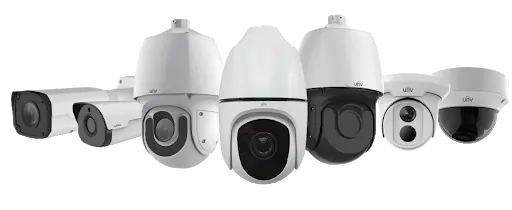CCTV event monitoring, often also referred to as black screen monitoring has brought an entirely new dimension to protecting lives and assets, whether that be a private home, residential estate, or commercial premises.
Once your CCTV system consisting of cameras with smart functions such as intrusion detection, cross-line detection or human motion detection is installed, your system can be set-up to transmit audible and visual event alerts to our CCTV monitoring control room, as well as to your mobile phone when movement is detected.
Monitoring your property by utilizing cross-line detection, meaning we draw a virtual line around your property, or intrusion detection, meaning we create a virtual area inside which nothing may move, or cameras which recognise only human motion and thus eliminating any falls triggers, an event is created the moment an object moves across a virtual line or inside a virtually demarcated area.
It works like an alarm system with outdoor beams, only much better, since unlike an alarm's movement sensors, there is simply no way bypassing a camera with motion detection activated without triggering an alert. We will also know why an event occurred, unlike an alarm system which transmits a signal without you knowing what exactly caused the trigger.
In the above scenario it becomes almost unnecessary for us to watch a screen every moment of every day, since all the bells will sound in our monitoring station the moment movement (an event) is detected, and that particular camera/s pop up on our screen. In short, we do not need to rely on the human element detecting a compromising event, but rather on artificial intelligent cameras and software.
Many residential property owners are now starting to realize the advantages of a CCTV system as a detection and prevention tool against crime, opting to install cameras with movement detection, as apposed to an alarm system. A second reason for the opting for a CCTV system and event based monitoring by an off-site CCTV control room, is that people are starting to realize that they are in complete control of when we can view their cameras and when not, so privacy concerns are no longer an issue
General surveillance quite simply means a CCTV operator does a virtual patrol of a specific area by means of CCTV cameras, interprate what he or she sees, and take discretionary action. In this interpretive scenario, one is heavily reliant on the human element deciding if what he/she sees on the screen is acceptable and authorized or not, and based on that interpretation certain response actions will or will not be taken.

